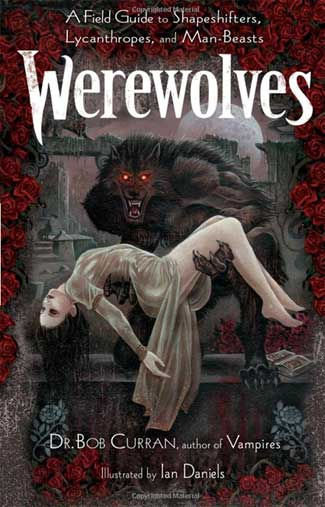The full moon shines its brightest for a few nights each month, illuminating the darkness that envelops the world. It should be a symbol of hope and comfort, yet mankind has long feared what terrors the satellite may bring. Why is it that the full moon inspires such dread?
 The most identifiable culprit is the prevailing myth of the werewolf. Since time immemorial, the moon has been associated with werewolves. This connection goes as far back as the 16th century, when Italian and German peasants believed that allowing the full moon’s light to shine on your face while you slept outside. On a summer night turned you into a werewolf. Another belief has it people born under the new moon were destined to become werewolves.
The most identifiable culprit is the prevailing myth of the werewolf. Since time immemorial, the moon has been associated with werewolves. This connection goes as far back as the 16th century, when Italian and German peasants believed that allowing the full moon’s light to shine on your face while you slept outside. On a summer night turned you into a werewolf. Another belief has it people born under the new moon were destined to become werewolves.
The moon later became identified as the trigger for a werewolf’s transformation. As soon as the light of the full moon hit the werewolf, he would change from a human form to something wolf-like. In the early myths, the werewolf’s non-human form was that of an ordinary wolf. However, other tales would speak of a horrible half-man, half-wolf creature, monstrous in both size and appearance. The half-man, half-wolf incarnation eventually sprang to life on the silver screen, in the classic film “The Wolf Man”, starring Lon Chaney. Audiences around the world were captivated by the transformation from man to monster, terrified by the sight of the hideous beast, yet strangely compelled to see it in all its glory. Since then, the werewolf –along with its ties with the moon – has been a part of the public’s consciousness.
 The Werewolf of London, as portrayed by Henry Hull Perhaps the most chilling part about the werewolf isn’t the creature’s appearance. It may be the fact that someone who seems completely timid and innocent can suddenly transform into a raging, bloodthirsty beast. It is certainly frightening to think that your next-door neighbor could, at any moment, come bursting into your house with murder in his eyes. Because we fear this unpredictability, we tend to fear what may bring this savage transformation about – and in this case, it’s the full moon. The full moon, then, isn’t scary in itself; it’s the fact that it could turn the person right beside you into an animalistic beast.
The Werewolf of London, as portrayed by Henry Hull Perhaps the most chilling part about the werewolf isn’t the creature’s appearance. It may be the fact that someone who seems completely timid and innocent can suddenly transform into a raging, bloodthirsty beast. It is certainly frightening to think that your next-door neighbor could, at any moment, come bursting into your house with murder in his eyes. Because we fear this unpredictability, we tend to fear what may bring this savage transformation about – and in this case, it’s the full moon. The full moon, then, isn’t scary in itself; it’s the fact that it could turn the person right beside you into an animalistic beast.
Some people believe that although werewolves aren’t likely to exist, the full moon does bring out the monster in man. A popular idea has it that staring at the full moon for too long drove a man to madness; in fact, the word “lunacy” comes from our moon’s name, “Luna”. Because of this, it’s not uncommon for some individuals to attribute strange and unusually uninhibited behavior to a full moon being out. As these people may put it, “the freaks come out at night”.
Another theory is that the full moon’s gravitational pull has a profound effect on the human body. This has a lot to do with the fact that the human body is composed primarily of water. Just as the moon’s gravity pushes and pulls the ocean tides, the full moon’s gravity causes an imbalance in our systems. This imbalance is thought to cause violent and aggressive behavior in people. Because of these two notions, there is a popular belhaf that the full moon “transforms” normal men into savage, violent monsters – only this time, they keep their human forms. As a result, many attribute crimes and other violent acts done in the night to the full moon. The idea that the full moon led to violent behavior gained even more popularity due to a study by Arnold Lieber, a psychologist from the University of Miami. Lieber and his associates examined 15 years’ worth of homicide reports in Dade County. To their surprise, the team found an astonishing connection between the incidence of homicide and the moon’s cycle – more killings occurred when the full moon was out!
However, researchers over the years have determined that the moon has no significant effect on human behavior, save for activities like fishing, which are affected by the tides. Ivan Kelly and his associates reviewed a series of studies back in 1996 on the moon’s effects on human behavior. In 60 different studies, they examined the relationships between the full moon and a wide variety of abnormal behaviors, including homicide, suicide, kidnapping, assault, and domestic violence. In all of their studies, they found that there was no significant connection between the full moon and any of these behaviors.
Other researchers have found zero evidence supporting the claim that the moon has an effect on human behavior as well. There was no connection with suicides in Sacramento County, and no connection with crime in Jacksonville, Florida. In addition, Lieber’s study, which found a significant relationship between homicide and the full moon, was eventually disproven on the grounds of faulty statistical analysis. It seems, then, that no matter how much the public might believe that the full moon brings out the animal in human beings, there is simply no scientific evidence to support the notion.
Still, there is such a thing as a self-fulfilling prophecy. People tend to behave in a way that validates their beliefs. If you think that a good luck charm works, you will unconsciously improve your performance. If you think that a certain pair of socks gives you more luck on dates, you will act more charming than you usually are without even knowing it. This is because we all have this self-serving bias to prove our beliefs right, no matter how absurd they may be. We will do our best to confirm what we believe in, whether we do it consciously or not. This is precisely why many athletes stick to certain rituals before big games – they don’t want to prove their superstitions wrong, so they end up playing a better game.
To the same effect, if you truly believe that the moon turns man into monster – literally or otherwise – you may just see connections between the full moon and such violent behavior, even if the connection isn’t there at all, just so you can feel validated about your beliefs. Worse, you might even act out your own horrifying transformation. In this forum, would that be so bad though?
 Horror News | HNN Official Site | Horror Movies,Trailers, Reviews
Horror News | HNN Official Site | Horror Movies,Trailers, Reviews







